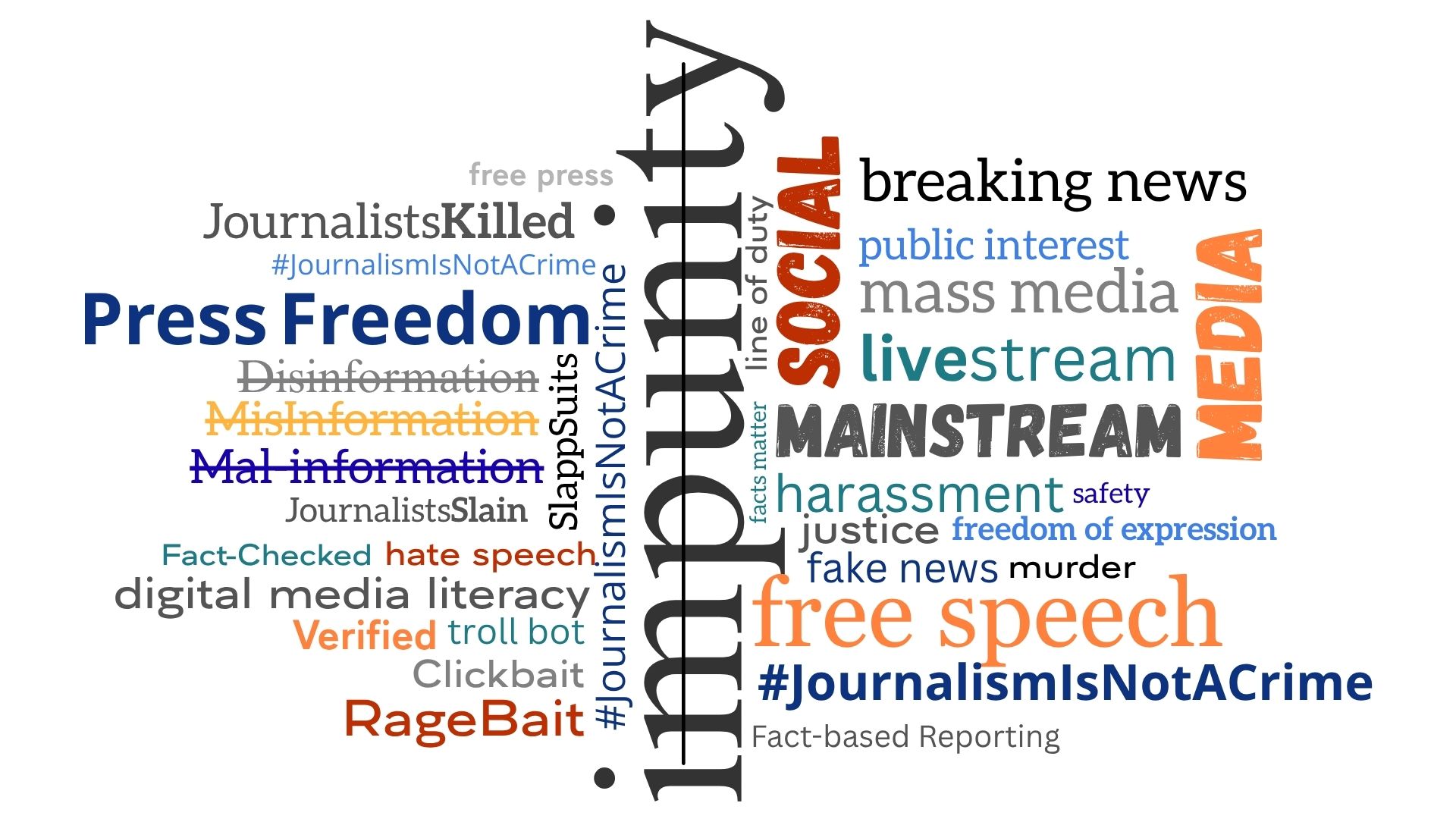World
Global Campaign Raises Alarm Over Journalists’ Impunity

The issue of journalist safety has come to the forefront as the United Nations highlighted the alarming rates of impunity for crimes against journalists. On November 2, 2024, UN Secretary-General António Guterres issued a powerful statement marking the International Day to End Impunity for Crimes Against Journalists. He emphasized that “Impunity anywhere is not only an injustice to the victims and their families – it is an assault on press freedom, an invitation to further violence, and a threat to democracy itself.”
This year, the observance shifted focus from a global conference to a campaign aimed at addressing AI-facilitated gender-based violence, particularly targeting women journalists. UNESCO’s theme, “Chat GBV: Raising Awareness on AI-facilitated Gender-Based Violence Against Women Journalists,” reflects a troubling increase in threats and violence against media professionals. The campaign aims to shed light on how these threats can stifle freedom of expression.
According to UNESCO, the global impunity rate for the killing of journalists stands at an alarming 85% from 2006 to 2024. A report released in September by the Commonwealth Human Rights Initiative, titled “Who Controls The Narrative? Legal Restrictions On Freedom Of Expression In The Commonwealth,” revealed even higher rates of impunity, documenting only eight resolved cases out of 213 journalist killings between 2006 and 2023, resulting in a staggering 96% impunity rate.
Since 1992, the Committee to Protect Journalists (CPJ) has tracked cases of journalists who have been detained, missing, or killed while performing their duties. Their annual Impunity Index, first published in 2008, recorded a 77% impunity rate in 2024. Haiti topped the index, while Israel marked its first appearance due to the unprecedented number of Palestinian journalists killed.
The year 2024 is noted as particularly deadly for journalists, with CPJ reporting that 361 journalists were imprisoned worldwide as of December 1, 2024. This figure represents the second-highest recorded number. While CPJ is not releasing an index this year, the ongoing changes in the safety landscape for journalists reflect a significant escalation in violence and intimidation.
Phil Chetwyn, the global news director at Agence France-Presse, remarked for World News Day that the environment for journalists has deteriorated to levels not seen in decades. He noted a coordinated escalation of violence and censorship, particularly in conflict areas and digital spaces.
According to real-time monitoring from Reporters Without Borders, 50 journalists were killed between January and October of 2025. UNESCO’s Observatory of Killed Journalists reported a higher figure of 84 for the same period. Furthermore, the documented rise in online attacks against women journalists, even in war zones like Ukraine, highlights the multifaceted nature of the threats faced by media professionals.
The ramifications of these attacks extend beyond immediate physical danger. Data from Article 19’s Global Expression Report 2025 indicates that over 5.6 billion people have experienced a decline in their freedom of expression over the past decade. In this time, scores have diminished in 77 countries, with only 35 nations classified as “Open.” A disheartening statistic reveals that for every individual who has seen improvements in freedom of expression, 19 have experienced deterioration.
The report “Who Controls the Narrative?” also found that repression has increased for 80% of the global population. Currently, only four out of 37 countries are considered “in crisis,” including Bangladesh and India, while seven nations, such as Australia and Canada, are classified as “open.” Despite a fragile ceasefire, international journalists continue to face barriers in regions like Gaza.
In the United States, a nation historically known for its commitment to democratic values, the current administration has been criticized for its adversarial stance towards the media. In September, the White House imposed sanctions on three prominent human rights organizations involved in war crimes investigations with the International Criminal Court (ICC). This move may have influenced decisions by Mali, Burkina Faso, and Niger to withdraw from the ICC, citing perceived biases.
While there are international frameworks in place to address impunity, much more is required to enact meaningful change. Advocacy and awareness remain crucial in tackling the challenges faced by journalists worldwide.
Individuals looking to contribute to the fight against impunity can consider republishing op-eds, sharing UNESCO’s campaign materials, or joining advocacy groups such as the Coalition for the ICC, which actively promotes awareness through initiatives like the Making Justice Work campaign.
-

 Science2 weeks ago
Science2 weeks agoInventor Achieves Breakthrough with 2 Billion FPS Laser Video
-

 Top Stories2 weeks ago
Top Stories2 weeks agoCharlie Sheen’s New Romance: ‘Glowing’ with Younger Partner
-

 Entertainment2 weeks ago
Entertainment2 weeks agoDua Lipa Aces GCSE Spanish, Sparks Super Bowl Buzz with Fans
-

 Business2 weeks ago
Business2 weeks agoTyler Technologies Set to Reveal Q3 Earnings on October 22
-

 World2 weeks ago
World2 weeks agoR&B Icon D’Angelo Dies at 51, Leaving Lasting Legacy
-

 Health2 weeks ago
Health2 weeks agoCurium Group, PeptiDream, and PDRadiopharma Launch Key Cancer Trial
-

 Health2 weeks ago
Health2 weeks agoNorth Carolina’s Biotech Boom: Billions in New Investments
-

 Entertainment2 weeks ago
Entertainment2 weeks agoMother Fights to Reunite with Children After Kidnapping in New Drama
-

 Entertainment2 weeks ago
Entertainment2 weeks agoRed Sox’s Bregman to Become Free Agent; Tigers Commit to Skubal
-

 Top Stories2 weeks ago
Top Stories2 weeks agoDisney+ Launches Chilling Classic ‘Something Wicked’ Just in Time for October
-

 Science2 weeks ago
Science2 weeks agoNorth Carolina’s Biotech Boom: Billions Invested in Manufacturing
-

 Health2 weeks ago
Health2 weeks agoCommunity Unites for 7th Annual Into the Light Walk for Mental Health









